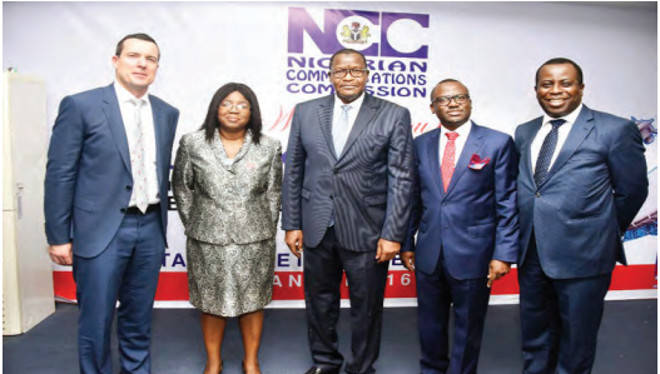To boost broadband, Nigeria needs over 120,000 km of fi bre network, says Danbatta
To achieve its goal of pervasive broadband penetration, Nigeria needs over 120,000 kilo meters of metropolitan fibre networks interconnected across the country. The Executive Vice Chairman of the Nigerian Communications Commission (NCC), Prof Umar Garba Danbatta, who disclosed this at the weekend in Abuja, said that only 38,000 kilo meters have been covered so far. […]


To achieve its goal of pervasive broadband penetration, Nigeria needs over 120,000 kilo meters of metropolitan fibre networks interconnected across the country. The Executive Vice Chairman of the Nigerian Communications Commission (NCC), Prof Umar Garba Danbatta, who disclosed this at the weekend in Abuja, said that only 38,000 kilo meters have been covered so far. He was speaking while receiving a delegation from Nigeria Industrial Policy and Competiveness Advisory Council led by Ms Edirin Akemu. Speaking further, Danbatta called on the Federal Government to ensure that all the 36 states governments of the federation adhere to the resolution of National Economic Council on the Right of Way charges, which stipulates N145 per meter for laying fibre network in every part of the country. “The Right of Way issue is something that refuses to go away despite the existence of a document guiding what should be charged. Currently nobody is complying with the provision of that document,” he lamented. “We cannot compel the state governments to charge N145 per meter for fibre. The Federal Government can, however, meet with the governors and extract a commitment from them, to ensure that NEC’s provision is strictly adhered to,” he further noted. The NCC boss also called for more Information and Communications Technology (ICT) capacity building in the country in order to fully take advantage of the digital transformation that is taking place in the world. He argued that while Nigeria strives to build the needed ICT infrastructure, the efforts will be in vain “if there is no critical mass of ICT adoption and use to drive the digital revolution”.
